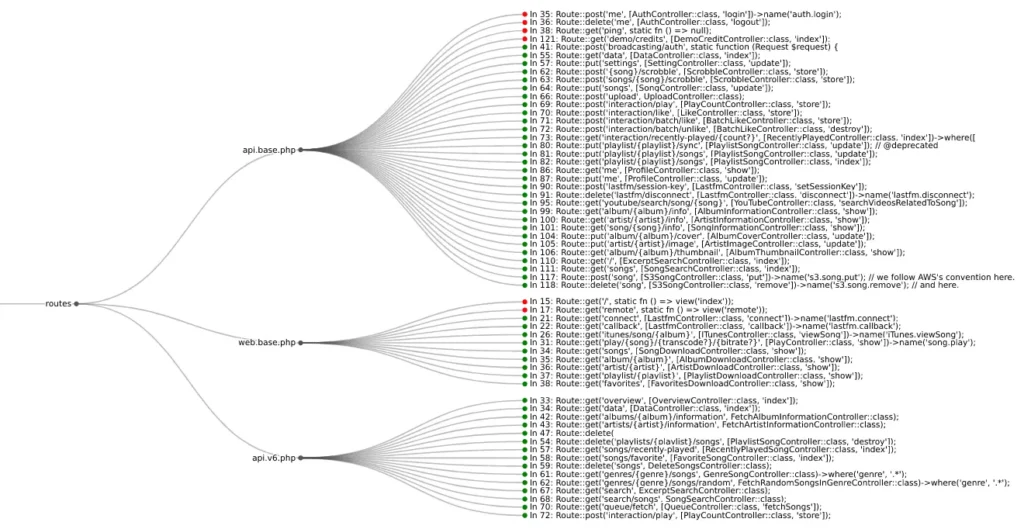route-detect: Find authentication and authorization security bugs in web application routes
route-detect
Find authentication (authn) and authorization (authz) security bugs in web application routes:

Web application HTTP route authn and authz bugs are some of the most common security issues found today. These industry standard resources highlight the severity of the issue:
- 2021 OWASP Top 10 #1 – Broken Access Control
- 2021 OWASP Top 10 #7 – Identification and Authentication Failures (formerly Broken Authentication)
- 2023 OWASP API Top 10 #1 – Broken Object Level Authorization
- 2023 OWASP API Top 10 #2 – Broken Authentication
- 2023 OWASP API Top 10 #5 – Broken Function Level Authorization
- 2023 CWE Top 25 #11 – CWE-862: Missing Authorization
- 2023 CWE Top 25 #13 – CWE-287: Improper Authentication
- 2023 CWE Top 25 #20 – CWE-306: Missing Authentication for Critical Function
- 2023 CWE Top 25 #24 – CWE-863: Incorrect Authorization
Supported web frameworks (route-detect IDs in parentheses):
- Python: Django (
django,django-rest-framework), Flask (flask), Sanic (sanic) - PHP: Laravel (
laravel), Symfony (symfony), CakePHP (cakephp) - Ruby: Rails* (
rails), Grape (grape) - Java: JAX-RS (
jax-rs), Spring (spring) - Go: Gorilla (
gorilla), Gin (gin), Chi (chi) - JavaScript/TypeScript: Express (
express), React (react), Angular (angular)
*Rails support is limited. Please see this issue for more information.
Install
$ python -m pip install –upgrade route-detect
Use
route-detect provides the routes CLI command and uses semgrep to search for routes.
Use the which subcommand to point semgrep at the correct web application rules:
$ semgrep –config $(routes which django) path/to/django/code
Use the viz subcommand to visualize route information in your browser:
$ semgrep –json –config $(routes which django) –output routes.json path/to/django/code
$ routes viz –browser routes.json
If you’re not sure which framework to look for, you can use the special all ID to check everything:
$ semgrep –json –config $(routes which all) –output routes.json path/to/code
If you have custom authn or authz logic, you can copy route-detect‘s rules:
$ cp $(routes which django) my-django.yml
Then you can modify the rule as necessary and run it like above:
$ semgrep –json –config my-django.yml –output routes.json path/to/django/code
$ routes viz –browser routes.json
Copyright (c) 2023, mschwager
Source: https://github.com/mschwager/





